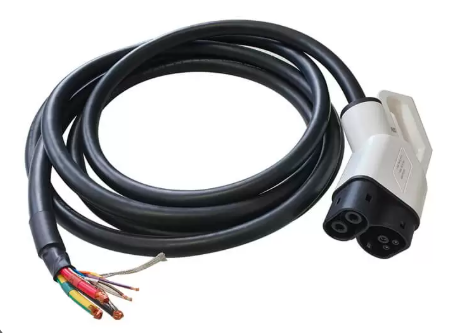understanding the dc charger ccs: fast charging for electric vehicles

with the rise of electric vehicles (evs), efficient and fast charging solutions have become critical to support growing adoption. among the most popular and effective technologies is the dc charger ccs. this charger type combines direct current (dc) charging with the combined charging system (ccs) standard to deliver fast, convenient, and widely compatible ev charging. in this article, we will delve into the technology behind the dc charger ccs, its advantages, challenges, and its significance in the future of electric mobility.
what is a dc charger ccs?
a dc charger ccs refers to a charging device that supplies direct current power to an electric vehicle using the combined charging system (ccs) interface. unlike ac chargers, which require the vehicle’s onboard charger to convert alternating current (ac) into dc for battery storage, a dc charger ccs provides dc power directly to the battery pack. this direct supply allows for much faster charging speeds and greater efficiency.
the ccs protocol integrates both ac and dc charging capabilities into a single connector, enabling vehicles to use one port for multiple charging types. the dc charger ccs is a preferred fast charging solution in many markets, including north america and europe, because of its speed, safety, and growing infrastructure.
how does the dc charger ccs work?
understanding how the dc charger ccs operates helps clarify why it is such an effective fast charging solution:
- direct current supply: the charger bypasses the vehicle’s onboard ac-to-dc converter and delivers dc power straight to the battery, eliminating conversion bottlenecks and allowing higher power transfer.
- combined charging system connector: the ccs interface combines the traditional ac charging plug with two additional dc pins beneath it. this combination enables charging at various speeds with a single port.
- communication and safety: the charger and vehicle communicate through protocols to regulate voltage, current, and temperature, ensuring the battery charges safely and efficiently without overheating.
- power levels: dc charger ccs stations typically offer power ranging from 50 kw to 350 kw or more, dramatically reducing charging times compared to standard ac chargers.
key benefits of using a dc charger ccs
the dc charger ccs offers multiple benefits that have made it a popular choice for fast charging infrastructure:
- faster charging times
because it delivers direct current at high power levels, the dc charger ccs can charge an ev battery up to 80% in roughly 20-30 minutes, depending on the vehicle and charger specifications. - broad compatibility
many ev manufacturers support the ccs standard, making dc charger ccs stations accessible for a wide range of vehicles without needing adapters. - energy efficiency
direct dc charging reduces energy losses associated with onboard conversion, making the process more efficient. - scalability
the modular design of dc charger ccs stations allows for easy upgrades to higher power levels as battery technologies improve.
See also: Redefining Ability: Living Fully with Physical Challenges
where are dc charger ccs stations commonly found?
the dc charger ccs is well-suited for various charging environments due to its fast and reliable power delivery:
- highway rest stops and service areas: enabling long-distance travelers to quickly recharge during road trips.
- urban public charging hubs: providing fast charging options for city dwellers who may not have access to home charging.
- fleet and commercial vehicle depots: ensuring minimal downtime for electric buses, delivery trucks, and taxis.
- retail centers and hospitality venues: attracting customers by offering rapid charging while they shop or dine.
what to consider when installing or using a dc charger ccs?
whether you’re a business installing a charging station or an ev driver looking for charging options, these considerations matter:
- charger power rating: selecting a charger that meets the needs of typical users is important—higher power chargers (e.g., 150 kw+) provide faster charging but cost more to install and operate.
- connector type: ensure the dc charger ccs supports the correct ccs variant—ccs1 (common in north america) or ccs2 (common in europe and asia).
- network features: many modern dc charger ccs units support smart functions like user authentication, mobile app integration, and remote diagnostics.
- environmental durability: chargers installed outdoors should have protections against weather, dust, and vandalism.
- grid capacity: fast dc charging demands significant electrical power; infrastructure upgrades may be necessary for installation sites.
challenges facing dc charger ccs adoption
while the dc charger ccs technology is promising, there are challenges to consider:
- high installation and maintenance costs: the equipment and required grid upgrades make dc charger ccs installations expensive.
- grid demand management: rapid charging can place stress on local power grids, requiring intelligent load management or supplementary energy storage.
conclusion
the dc charger ccs is a vital component in the expansion of electric vehicle infrastructureas technology progresses and charging networks grow, the dc charger ccs will play an increasingly important role in enabling sustainable transportation solutions worldwide.
for ev drivers, it means less waiting and more driving. for businesses and governments, it offers a future-ready investment in clean mobility. understanding the strengths and limitations of the dc charger ccs helps everyone appreciate its critical place in the electrified roads of tomorrow.




